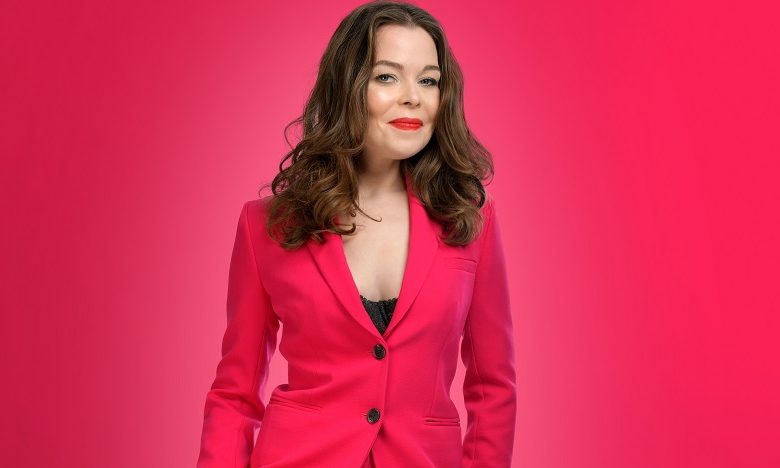
Comedian Juliette Burton on being open about her mental health
Mental health is often misunderstood, ignored and not talked about. But it can be just as disabling as a physical condition or disability. So more needs to be done to remove the stigma around mental health. Juliette Burton is a comedian who talks openly in her comedy about her struggles with mental health.
Please tell Disability Horizons readers a little about you, your background and your mental health conditions.
I’m a comedian and writer and have been a journalist and actress. I’m a huge nerd and love music, Shakespeare, bright colours and exploring new experiences.
I’ve never felt like I belonged until I met other misfits, like me, in the comedy world. Comedy to me is a survival technique – a way of finding light in the darkness.
I grew up on a remote farm in the middle of nowhere. Around age 7 or 8 I began exhibiting signs of mental health distress, common with depression, anxiety, OCD and problems with food. But I wasn’t diagnosed with my first condition until I was 14.
By then my illnesses had morphed into anorexia. I was in and out of the hospital in my teens, sectioned under the mental health act aged 17 and had audible and visual hallucinations due to psychosis.
I was also diagnosed with bipolar disorder, body dysmorphic disorder and bulimia. In total, I’ve been diagnosed with 12 to 13 different conditions, most recently separation anxiety disorder and complex post-traumatic stress disorder.
I went from a size 4 to a size 20 in around six months due to compulsive overeating disorder and I have had suicidal thoughts repeatedly throughout my life.
You talk openly about your mental health. How has it affected you over the years?
My mental illnesses have affected me in a number of different ways over the years. I battle in my own mind daily and sometimes struggle so much I feel like giving up. But I never completely do. There’s always hope, even if I don’t see it.
And when I can’t see the hope, I’m always at least clinging onto curiosity – maybe things tomorrow will be different, let’s find out.
My mental illnesses have also been my survival strategies. I developed many of my conditions as a natural response to overwhelming thoughts and feelings. I was in such emotional distress I couldn’t psychologically handle it. So my mind, being creative and wanting me to survive, developed unhealthy ways of coping with those emotions. These became my various mental illnesses.
Talking openly about my mental health have been very positive. I’ve found ‘my tribe’ by being more open about who I am, and I am who I am because of and in spite of my mental illnesses.
We all have mental health, just like we all have physical health. Some of us have mental illnesses or conditions, just like some of us have physical illnesses or conditions.
Authenticity is a key part of my identity. Finding out who I am in relation to others and to my history is something I’m very focused on. I always want to be genuine in everything I do.
I hope my that experiences might help others, and so far it seems that it has helped people know they’re not alone.
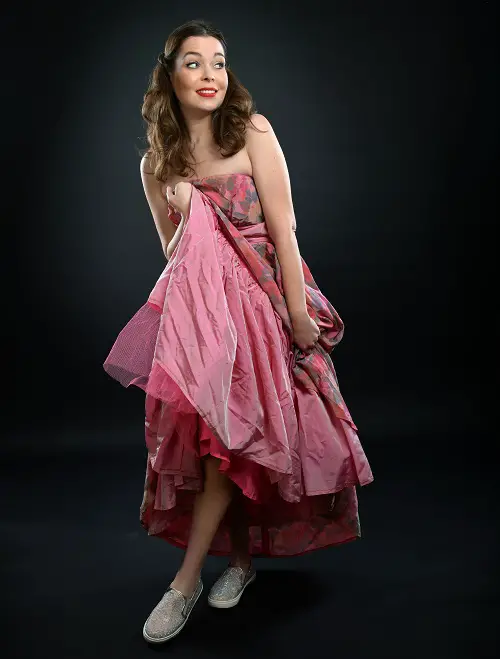
How did you first get into comedy and what did you do before?
I always adored comedy. I loved the Muppets from an early age, then Monty Python, Blackadder, the Vicar of Dibley, and every comedy sitcom under the sun as a teenager.
My family were never really into comedy in the same way, so it was my world to explore. I wanted to be an actress and writer from around the age of 7. But I was encouraged towards law and Oxbridge.
My mental illnesses meant that I, of course, didn’t get any A levels as I was in hospital so much. During this a very dark time in my 20s when I was having suicidal thoughts, I decided I would try to be a journalist. Having been recommended a course, I got in on the strength of my written application.
After studying, I wrote for magazines, newspapers and BBC radio. Then was fired during the recession, and finding work was hard. So I tried to be an actress instead. I started doing voiceover work, thanks to my background in radio.
I realised that the only way to get decent acting roles as a woman was to write it for myself. That’s when I found that comedy was my natural voice. If I could make people laugh then they’d listen for longer.
Comedy unites people in a way I fell in love with. Comedy challenges people’s expectations of me, which was liberating. It was everything I’d ever been searching for.
To start with I performed in other people’s shows at Edinburgh Fringe 2006 to 2009, then in co-written shows in 2011 and 2012. My first solo show there was in 2013.
After sold-out shows from 2015 to 2018 and tours in Australia and New Zealand, I was hooked on comedy for life. I was on my second UK tour when lockdown began.
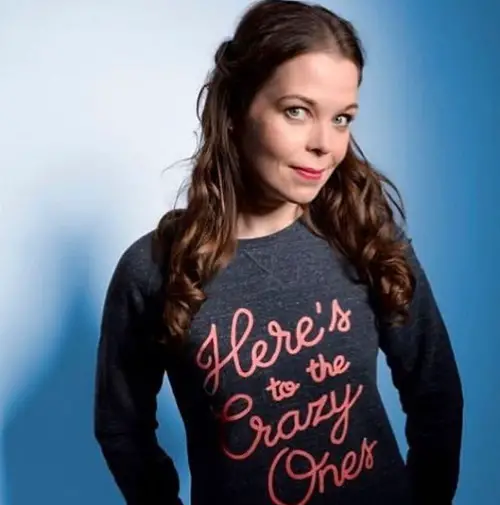
Your mental health is the basis of your comedy. Why did you decide to talk about it so openly and use it to make people laugh?
Comedy has the power to change people’s perspectives like nothing else. It can inform, educate and entertain without preaching.
After my first show in 2012 where I spoke openly about it, audience members started coming up to me and thanking me personally, saying things like, “My brother has been sectioned and I was worried about him. Seeing you talk openly gives me hope.” Or, “I have depression and knowing you have it too but you get up on stage, it means I could get through this.” This had a profound impact on me.
And it continued over the years. The braver I was in being honest and authentic whilst making people laugh, the more audience members would open up to me about what they’d been through. Then, in turn, more barriers came down and I found my tribe.
Laughing about something helps you to understand it better. I know I feel like I understand topics that scare me far more when I watch comedians talk about it because it makes it more accessible. Comedy breaks down barriers, increases understanding and helps people feel less alone.
Has talking about your mental health in your comedy helped over the years?
Yes. It’s certainly helped me. I hope it also helps other people too.
I must stress though that comedy isn’t therapy, not when mental illness is concerned. Comedy can sometimes be cathartic for both the performer and audience alike. Laughter is a sign of recognition as well as a tension release and predates language as a form of communication.
But I would never openly discuss things on stage that I haven’t yet dealt with safely in therapy first. There are many stories and aspects of my past that I’ve not yet opened up about on stage because I’m not in a place to do so yet. But one day I hope to, when I’m ready and when I have processed it in a safe way.
It’s also important to remember that someone talking a lot about something doesn’t make them an expert on the subject. I’m an expert in my own experiences, but I believe it’s not enough to just speak from experience when you have a public platform, not if you really care about the people listening.
So it’s important to educate yourself in all aspects of what it is you’re talking about. I’ve needed to pair up with and learn from various charities over the years to become more knowledgeable in my own field.
A few years ago, I started working with, writing for and learning from Mind, SANE, B-eat, Beyond, Chasing The Stigma, Time To Change and many others. I also became an ambassador for ReThink Mental Illness. I’m currently educating myself more and learning from Black Minds Matter.
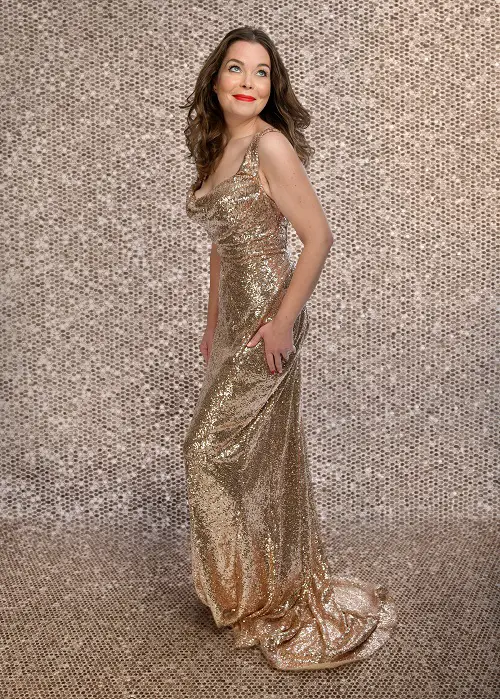
What have people’s reactions been to you and your openness about your mental health?
When I first started performing comedy relating to my mental health, I had some very stigma-influenced reactions. But this just helped to remind me how important it is to keep being open and honest about mental health – to change the world one attitude at a time.
Over the years, I’ve had people tell me to my face that mental illness is “made up”, “imagined” and “attention-seeking”. I’ve had people outright say, “You can’t be ill, you don’t look ill.”
I’ve ended up creating routines around these ignorant comments. They used to upset and anger me when I was first diagnosed. But when I hear them nowadays, I know it is simply outdated and archaic.
I’ve had people thinking they’re being kind by saying, “It’s brave talking about mental illness.” But, to me, it’s not brave because there’s nothing to be scared of. It’s the right, authentic thing to do. Just like it’s not ‘brave’ to call out racism, sexism or ableism. It’s simply the path to progress and I hope that people can see as clearly that it’s not to be feared.
I’ve also had people thinking they’re complimenting me by saying, “You’ve got nothing to worry about, you’re so pretty,” as if appearance is the answer to everything. Saying that implies that I place my value on looks that are beyond my control, looks that are only deemed of value if I adhere to beauty standards entrenched and dictated by fashion industries.
My appearance is not exactly an achievement and more down to genetics. It’s about DNA from people I’ve never met, so I don’t feel attached to it. Instead, I feel attached to things I have cultivated consciously, such as my resilience, intelligence and tenacity.
Given my experiences with food and weight, my physical reflection and I have a very difficult relationship, mostly because I have struggled with my own identity.
That’s another reason why I love comedy – my identity onstage is defined only by whether my audience is laughing with me or not. I’m fully present and empowered and liberated at that moment.
It has also frustrated me when I have felt defined by my conditions or past. “Mental health comedian” feels like a reductive term. I want to be funny – that’s the most liberating thing I can be.
The vast majority of reactions have been encouraging, loving, celebratory, liberating and empowering. My incredible fanbase is made up of people who see value in authenticity, particularly considering how hard it is for us all to be true to ourselves. And that is all I’m striving to be – true to myself and to others.
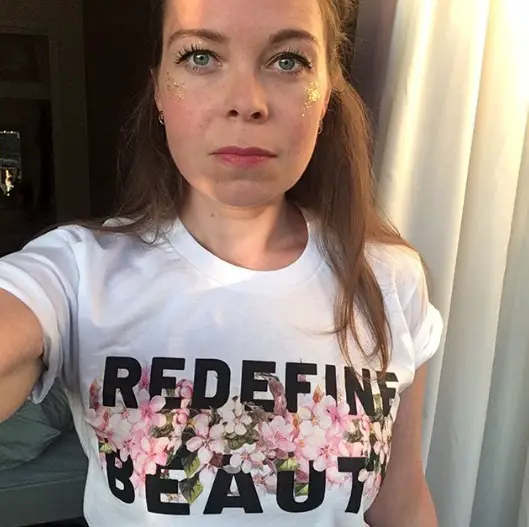
What were your favourite comedy gigs and why?
My favourite gigs have been the ones where my audiences are really up for it, where they’re laughing without inhibition, where they know they’re in a safe space and can let their laughter free.
That’s one of my favourite things about this wonderful job I get to do – to help make people laugh. Laughter is an equaliser. It brings down bullies, challenges the powers that be and I love it.
My audiences are the intelligent but silly comedy lovers who want to laugh about difficult concepts, embrace all of their inner contradictions and listen with open hearts and minds.
I’ve had those kinds of gigs all over the country and beyond. I’ve been so lucky that my career has taken me to new and exciting places and I have had adventures close to home and far away.
Everywhere I go I meet people who are so similar, so beautifully individual and yet so united by their experiences, mindsets, attitudes, ideals and beliefs.
How has the outbreak of Covid-19 across the world affected your mental health?
The outbreak has affected my mental health significantly. In the past few weeks and months, I’ve lost my income. My tour that I spent years and money creating is now being rescheduled for a time when I’ll have to rewrite it further to reflect the experiences we’re all having now. That’s part of what comedy and all art does – it’s a response to what on earth is going on for us all in society.
The loss of structure and coping mechanisms was another chasm to negotiate. The outbreak meant I suddenly was unable to use coping strategies that helped me survive my own torturous thoughts.
These included attending therapy sessions, seeing understanding friends, eating out when I am unable to face cooking for myself due to my eating disorders and having new experiences to stave off my depression.
Most of all, the lockdown took away my purpose – my career, my audience. I believe the opposite of depression is not happiness, but purpose. Some people keep depression at bay and get out of bed every day for their children, partner, dog or job. For me, I got out of bed for my audiences. Suddenly I didn’t have them any more, and I don’t know when I’ll have them again.
So I had to find my audiences anew. I’ve been writing more and doing more online and doing virtual performances. Those new audiences there have been my heroes – they are keeping me going.
There are so many industries in dire straits right now, and my beloved arts industry is one of them. I know there is a way forward, we just have to focus on the next small step and before we know it we’ll make our way through this.
For me, each next performance is a step closer to being back with audiences in theatres again and hopefully connecting in ways more deeply than I’d anticipated before all this.
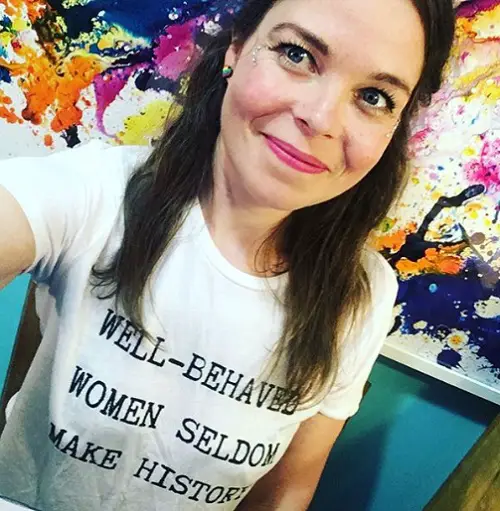
Do you have any tips on managing mental health in general and during this time?
I don’t have concrete answers, but I’ve tried to learn from my mistakes over the past weeks, and from the advice of the charities I mentioned. ReThink Mental Illness suggests doing the following:
- turning off news notifications on your phone
- informing yourself from trusted sources
- muting misinformation sharers online
- eating and sleeping well
- discussing fears with trusted friends
- distracting yourself with fun things.
Do some exercise
I have found that going running 3 to 4 times a week or cycling has helped. Any day that I’ve not been outside has ended up being a much harder mental health day. Get active in some way and move, even just a little.
Get into nature
Getting some sunshine is vital for me too. As a country girl at heart, getting vitamin D is chemically necessary. Seeing nature, being around trees and listening to the birds is so important. And given all the upheaval in the world right now, it is also an excellent time to try meditating.
Listen to music and be creative
I’ve noticed that putting on music to positively affect my mood has really helped motivate me when that seems far away. I also try to do creative activities just for fun, whether that’s cooking, gardening, drawing or writing – it could be anything.
Connect with others
Chatting to 3 to 4 people each day is vital too, whether that’s on the phone, a video call, in person or in a message. It’s good to simply get out of your head and be honest with those you care about. So call people, they might need it more than you or you might need it more than you realise.
Create gratitude lists
When things seem impossible, force yourself to count 10 things you’re grateful for. It can be small things or big things. For example, it could be the fact you saw a bird today, or have a roof over your head, or are having a good hair day or you heard someone laugh.
It might feel hard at first, but soon you find yourself not wanting to stop at just 10.
Have new experiences
Have new experiences a few times a week, whether that’s walking to a new spot, ordering a new takeaway, cooking a new recipe or social distancing with friends. I’ve taken myself to Borough Market every other week to just be surrounded by new sights, sounds and smells.
Give yourself treats
Having treats has been a huge help to me. They can be inexpensive treats, such as a sweet-smelling bunch of flowers; ordering cheap earrings on Etsy (ideally supporting a company or charity I rate); buying a new slogan t-shirt (I wear them for my online gigs); using a deep conditioner on my hair; styling my hair or wearing bright colours just for me.
Look after yourself
Being compassionate to yourself is a must. You can’t show up for anyone else if you don’t show up for yourself. We are living through pressured, historic times with constant challenges to our mental health. We can and will get through this and we will be changed by it. But I’m convinced it will be for the better.
In my experience, things are always darkest before the dawn, and it’s only when things become intensely uncomfortable or painful that real, profound, long-lasting change can come.
For more on Juliette, including her new online gigs and rescheduled tour by visiting her:
Website – Defined Juliette Burton
YouTube Channel
Instagram – juliette_burton
Twitter – @JulietteBurton
Facebook – Juliette Burton: Writer Performer
For more links to mental health advice and information, please visit: Mind, SANE Mental Health, Beat Eating Disorders, Chasing The Stigma, Time To Change and ReThink Mental Illness.
Interview by Liz Ransome-Croker and images by Steve Ullathorne
More on Disability Horizons…